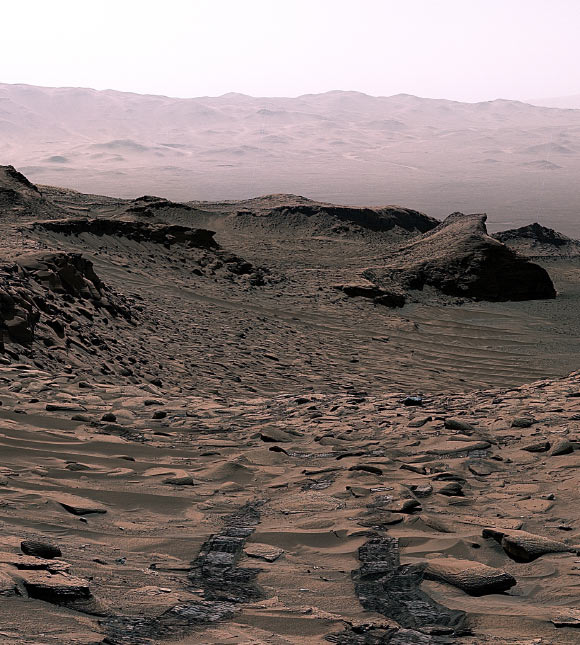NASA’s Curiosity rover has found evidence of a carbon cycle on ancient Mars, bringing scientists closer to an answer on whether the planet was ever capable of supporting life.
Planetary researchers have long believed that Mars once had a thick, carbon dioxide-rich atmosphere and liquid water on the planet’s surface.
That carbon dioxide and water should have reacted with Martian rocks to create carbonate minerals.
Until now, though, rover missions and near-infrared spectroscopy analysis from Mars-orbiting satellites haven’t found the amounts of carbonate on the planet’s surface predicted by this theory.
“We are ultimately trying to determine whether Mars was ever capable of supporting life – and our latest paper brings us closer to an answer,” said lead author Dr. Benjamin Tutolo, a researcher at the University of Calgary.
“It tells us that the planet was habitable and that the models for habitability are correct.”
Using data collected by Curiosity, Dr. Tutolo and his colleagues analyzed the composition of an 89-m stratigraphic section of Gale crater — which once contained an ancient lake.
They identified an iron carbonate mineral called siderite in high concentrations — ranging from approximately 5% to over 10% by weight — within magnesium sulfate-rich layers.
This was unexpected, because orbital measurements had not detected carbonates in these layers.
Given its provenance and chemistry, the researchers infer that the siderite formed by water-rock reactions and evaporation, indicating that carbon dioxide was chemically sequestered from the Martian atmosphere into the sedimentary rocks.
If the mineral composition of these sulfate layers is representative of sulfate-rich regions globally, those deposits contain a large, previously unrecognized carbon reservoir.
The carbonates have been partially destroyed by later processes, indicating that some of the carbon dioxide was later returned to the atmosphere, forming a carbon cycle.
“The…
Read the full article here

